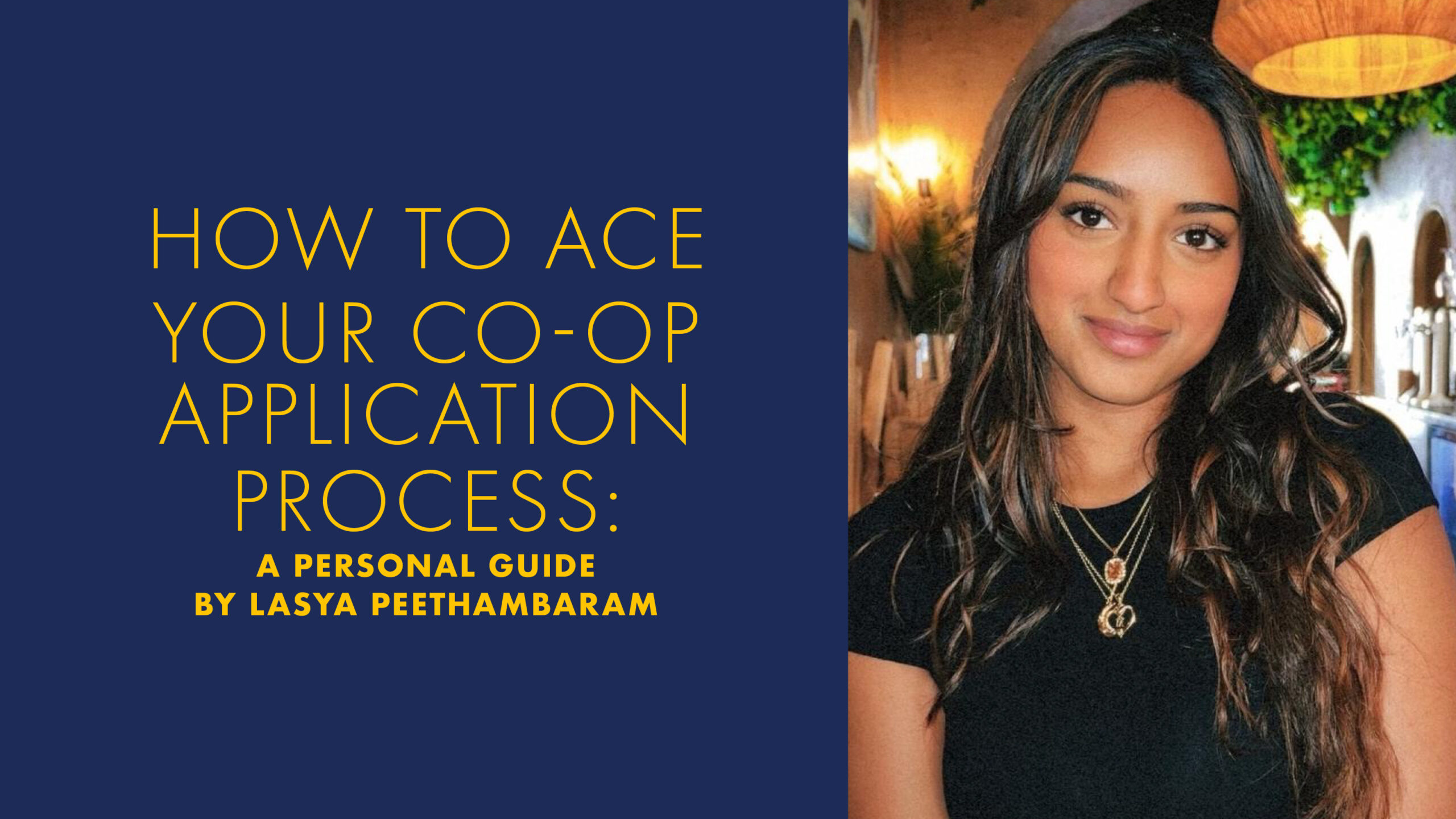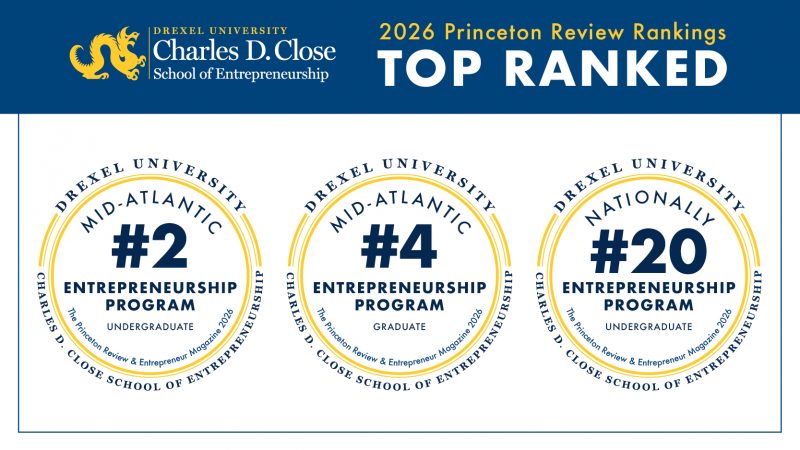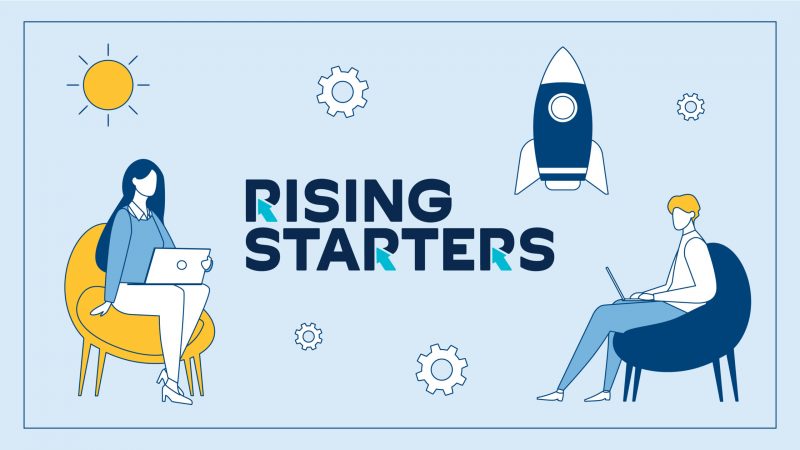Preparation: Setting the Stage for Success
When I began my co-op search, I realized the importance of taking charge of my own development. My dream was to find a position that offered remote work, focused on social media and advertising, had a great company culture, and supported work-life balance. By following the strategies listed below, I turned that dream into reality:
- Create Your Own Experience – Roles Can Be Made
Early in my college journey, I struggled to secure a traditional part-time job in my desired field. Instead of waiting for opportunities, I created my own—founding a social media agency. This gave me hands-on experience in content creation, client management, and analytics. Without setting my sights on creating my own opportunities I wouldn’t have been able to grow my skills nearly as much as I have. - Take Online Courses and Certifications
To stand out, I added relevant certifications to my resume. Many social media roles mentioned tools like HubSpot and Sprout Social, so I completed certifications within these platforms. Some excellent websites to register for free certifications include Forage, Coursera, and edX.
Additionally, you can explore industry-specific platforms offering free courses tailored to your field. For example, a key platform to consider in the social media industry is Meta Ads Manager, which provides industry-specific leverage during the application process. Highlight these certifications in your resume and cover letter, emphasizing the specific skills you gained. These not only boosted my qualifications but also gave me practical skills for interviews and on the job.
- Research Your Dream Job
Before applying, I thoroughly reviewed job descriptions for roles that excited me. I noticed patterns in required skills—keywords like “targeted advertising” and “content strategy” stood out.
I also researched my dream companies and roles to understand their values, mission, and culture, ensuring they aligned with my career goals. I also used LinkedIn to research people working in similar roles at my target companies to learn about their career paths and the skills they found most valuable.
This research not only helped me prioritize the skills I needed to develop but also allowed me to tailor my applications to reflect the company’s specific needs and stand out as a strong candidate.
- Network Strategically
Networking events can be transformative if approached with the right mindset. To create meaningful connections, focus on building genuine relationships rather than simply collecting contacts.
Start by introducing yourself confidently and asking thoughtful questions about others’ work or interests. Show genuine curiosity, listen actively, and find common ground. For example, at one event, I connected with a company founder by asking, “What was the most challenging part about creating your own company?” This question helped spark a conversation about our shared goals and interests. This led to an interview and eventually a role where I gained valuable experience.
The key to effective networking is following up after the event, staying in touch, and cultivating relationships over time. It’s not just about meeting people but building a strong, supportive network that can lead to new opportunities.
- Leverage AI to Critique Your Resume, Not Curate It
Using AI tools such as ChatGPT, I refined my resume by pasting it alongside my target job title to get feedback.
The Interview: Standing Out in the Moment
Interviews can be daunting, but preparation gave me confidence. Here’s how I approached mine:
- Use AI for Interview Preparation
I used AI tools to analyze job descriptions, extracting key skills and buzzwords like “audience segmentation” and “ROI analysis.” These became the foundation for my responses. If I lacked experience with a specific platform, I highlighted transferable skills and my willingness to learn. - Prepare Your Space
For Zoom interviews, I organized my laptop screen with my resume on one side, the interview window on the other, and a notes page open with keywords to reference during my responses. This setup helped me stay focused and ensure I addressed all the important details specific to the job.
Additionally, don’t overlook the basics—dress professionally and ensure your space has proper lighting. These small but crucial details can make a significant difference in leaving a strong impression.
- Nail the “Tell Me About Yourself” Question
When answering “Tell me about yourself?” walk through your college journey in chronological order. Start with your major and why you chose it, then highlight key experiences that built your skills, like managing deadlines or leading a team. Use specific examples and connect them to your career goals, ending with why this role excites you.
I recommend keeping your answer to this question around 2 minutes long. Framing your resume as a story makes your background easy to follow and shows intentional growth. Practice this answer out loud until it sounds natural and conversational.
- Practice Most Common Questions
Confidence comes from preparation. Practice these common interview questions to make a strong impression:
- “Tell me about yourself” – Share your professional journey, key skills, and why you’re excited about the role.
- “What are your strengths and weaknesses?” – Highlight relevant strengths with examples and discuss a weakness you’re improving.
- “Why do you want to work here?” – Reference the company’s mission or culture and connect it to your goals and contributions.
SUCCESS TIP: Writing down answers and using AI to critique them helped me refine my responses. I also asked a friend and a family member to help me by conducting a “mock interview”. I gave them my document of questions and answers so that I could practice how I might respond in the interview.
- Show Curiosity
I asked thoughtful questions, always coming with at least 6 prepared questions, usually asking 3. Be sure to not only ask questions about the job but also about the interviewer, company, and team.
A Personal Reflection: Learning from Rounds A and B
During my first round of co-op applications (A Round), I struggled. While studying abroad made preparation challenging, the experience taught me valuable lessons. Studying abroad made it difficult to fully prepare for my interviews, and I received only one offer and one qualified alternate (QA) ranking. Feeling discouraged, I used this experience to motivate me to improve.
In B Round, I refined my resume, practiced interviews, and leveraged AI tools. The result? I secured 12 interviews, 10 job offers, and one QA offer—nearly a 90% success rate. This experience not only restored my confidence but also highlighted the importance of preparation and persistence.
It’s okay to struggle in the beginning—everyone does. What truly matters is consistent dedication and a willingness to learn and improve. With effort and resilience, you can overcome challenges and achieve your goals.
Follow-Up: Leaving a Lasting Impression
- Write a Thoughtful Follow-Up Email
After your interview, send a personalized thank-you email. Express your gratitude, reiterate your excitement for the role, and include a link to your portfolio or relevant projects to showcase your work. - Connect on LinkedIn
Don’t forget to connect with your interviewers on LinkedIn! Add a personalized note referencing something specific from your conversation. Staying active on LinkedIn by sharing your accomplishments also keeps you on their radar. - Include Visuals
In your follow-up email, include links to relevant work, like projects or campaigns, to highlight your qualifications and leave a lasting impression. Consider sending a handwritten thank-you note as well, if appropriate for the company culture.
Additional Tips for Success That Helped Me
- Write a Cover Letter (Even If Optional)
Always write a cover letter, even if it’s optional—it’s your chance to tell your story and align your goals with the company’s mission. - Reflect on Your Career Goals
Be clear on what you want—whether it’s remote work, corporate experience vs startup, or a specific skill focus—so you can target the right roles. - Prepare Work Samples
Create a portfolio of your best work, including projects, presentations, or writing samples, and tailor it to each specific role you apply for. Have work samples ready to showcase your skills and make a strong impression during interviews. - Use AI for Career Advice
Use AI tools to refine your resume and identify skills to develop for a more focused career path.
By following these steps, I landed my current role on Cigna Healthcare’s social media team, a Fortune 15 company. This position aligns perfectly with my career aspirations. If you’re navigating the co-op process, feel free to reach out to me at lasyatarini@gmail.com for resume reviews, career advice, or co-op questions. With preparation, execution, and follow-up, you can achieve your career goals too!





